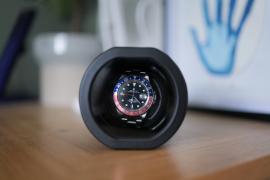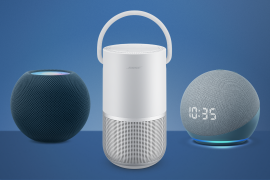Best fitness trackers in 2025 including Fitbit, Garmin, Whoop and more
Find the best fitness tracker for everyone – from runners, swimmers, and cyclists to anyone looking to track their daily steps, calories, sleep, and overall health.
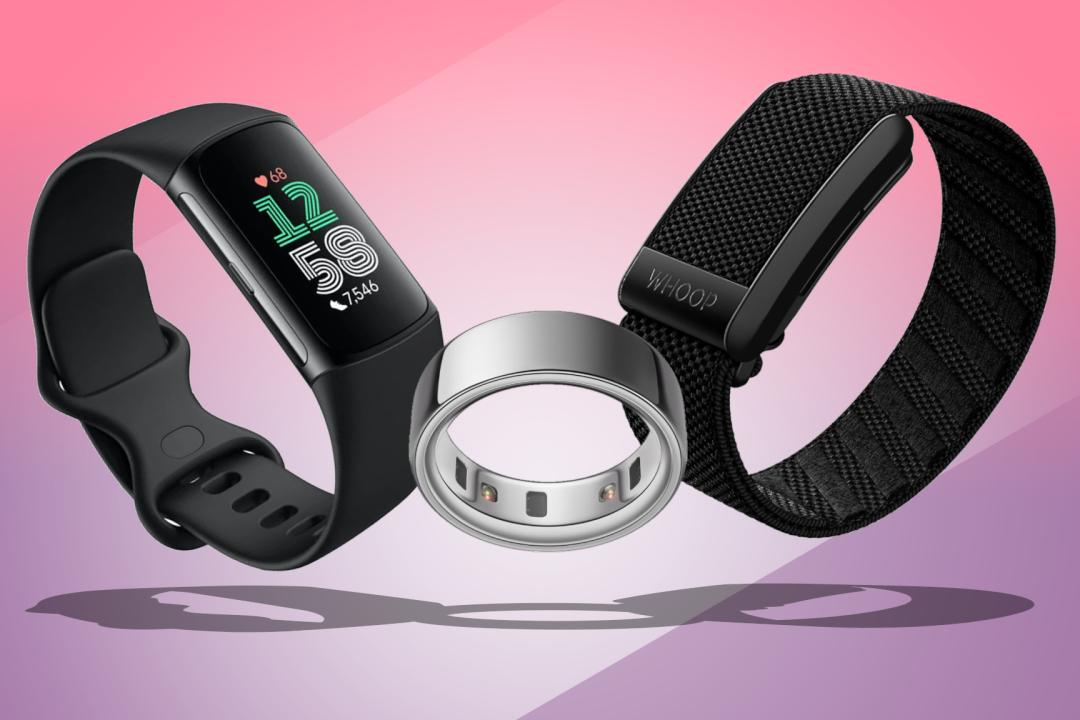
Looking for the best fitness tracker? Whether you’re training for a marathon, working on your fitness, or just want an easy way to keep tabs on steps, calories, heart rate, and sleep, there’s a tracker out there for you.
The choice can feel overwhelming. Some focus on advanced health data like blood oxygen and stress, while others stick to the basics like step counts and heart rate. You’ll also find feature-packed smartwatches alongside budget-friendly bands that still track the essentials.
We’ve tested a wide range of trackers and rounded up the best options for every budget and lifestyle. Sleek, rugged, stylish, or simple – whatever your vibe, there’s a device that fits. Strap one on and let it keep you motivated – hitting your health goals just got easier.
Why you can trust Stuff: Our team of experts rigorously test each product and provide honest, unbiased reviews to help you make informed decisions. For more details, read how we test and rate products.
Quick list: what’s the best fitness tracker?
We think the Fitbit Charge 6 (buy now) is the best fitness tracker for most people today. Combining a large screen, svelte design, and advanced health-tracking capabilities like stress management, it ticks all the main boxes (including GPS), for a reasonable price.
The Xiaomi Mi Band 9 (buy now) is an amazing budget option for those looking for a worry-free fitness tracking experience that won’t break the bank.
The Whoop MG (buy now) packs medical-grade ECG and daily blood-pressure tracking into a sleek, screenless band. But the hefty subscription and occasional auto-tracking blind spots mean it’s a luxury rather than a no-brainer.
The Garmin Vivosmart 5 (buy now), with is lightweight design might be forgettable, but if you can deal with the dinky screen and lack of built-in GPS, the Vivosmart 5 offers a lot of tracking smarts for a relatively affordable price
The Fitbit Inspire 3 (buy now) is comfortable and comes with a new colour screen. It’ll make you question whether you need to spend any more money.
The Withings ScanWatch (buy now) is a fitness tracker for analogue watch fans, the subtle ScanWatch will track everything from steps to oxygen saturation and ECG.
The Oura Ring Gen 4 (buy now) is a ring which manages to cram all the fitness tracking features most people need within its minuscule body. Comfortable enough to sleep in and for all-day wear, it’s perfect for those who would rather have a traditional watch without sacrificing fitness tracking abilities.
The best fitness trackers you can buy today:
Best fitness tracker overall
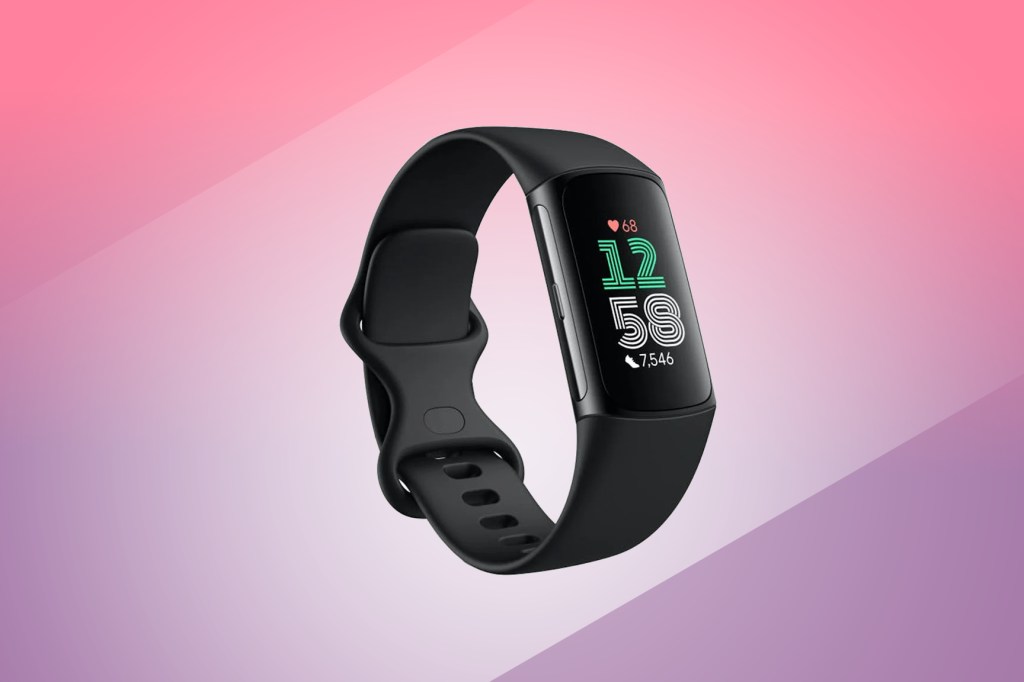
1. Fitbit Charge 6
Stuff Verdict
Combining a large screen, svelte design, and advanced health-tracking capabilities like stress management, the Fitbit Charge 6 ticks all the main boxes (including GPS), for a reasonable price.
Pros
- Finally gets a screen upgrade
- Comfortable to wear 24/7 and solid heart rate monitoring
- Easy to use interface
Cons
- Data insights locked behind Fitbit Premium
- Iffy sports tracking accuracy
| Fitbit Charge 6 specs | |
|---|---|
| Screen | 1.04in AMOLED always-on colour touchscreen |
| Battery life | Up to 7 days |
| Water resistance | 50m / 160ft |
| GPS | GPS + GLONASS |
| Sensors | ECG, SpO2, Ambient light, Optical heart rate |
| Compatibility | Android, iOS |
| Weight | 30g / 1 oz |
The Fitbit Charge 6 stands out as one of the best all-around fitness trackers. It combines a slim, stylish design with serious health features, including stress tracking, sleep monitoring, and 24/7 heart rate – all the essentials for keeping on top of your well-being.
Built-in GPS is a highlight, letting you accurately track runs, rides, and hikes without your phone in tow. In our tests, GPS performance was spot-on, making it a great pick for outdoor workouts. Add in a week-long battery life, and you’ve got a device that won’t constantly nag you for a recharge.
The Charge 6 plays nicely with both iOS and Android, syncing smoothly with popular fitness apps. It doesn’t include extras like onboard music, but at its price, it strikes an excellent balance between features and value. With a bright, easy-to-read display and reliable tracking across the board, the Fitbit Charge 6 is a strong choice for anyone after a capable, no-fuss fitness tracker. Also check out our guide to the best Fitbit trackers and watches, too.
- Read more: Fitbit Charge 6
Best fitness tracker for beginners
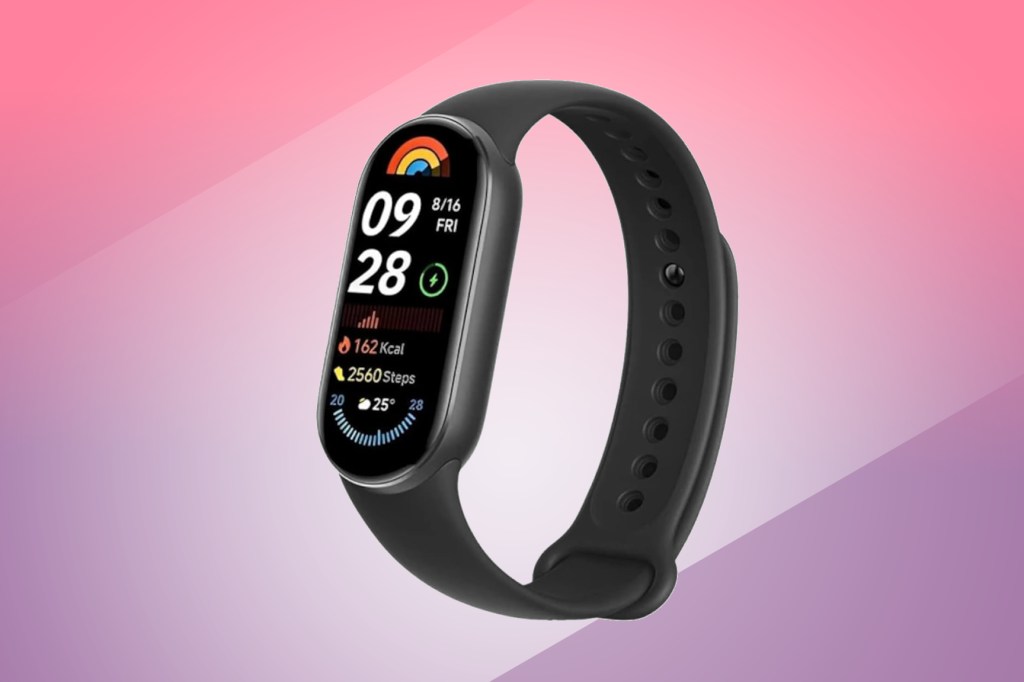
2. Xiaomi Mi Band 9
Stuff Verdict
A cheap and cheerful fitness tracker with a surprising number of features for the price
Pros
- Affordable price
- Good array of sensors
Cons
- Not the smartest tracker out there
- No 3rd party app support
| Xiaomi Mi Band 9 specs | |
|---|---|
| Screen | 1.62 inch AMOLED Touch Display, 192 x 490 pixels |
| Battery life | 21 days |
| Water resistance | 5ATM |
| GPS | No |
| Sensors | 6-axis sensor, Dual-channel PPG biosensor with heart rate and SpO2 monitoring |
| Compatibility | Andoird and iOS |
| Weight | 13.5g / 0.47 oz |
The Xiaomi Mi Band 9 is the go-to choice if you want a fitness tracker that won’t break the bank. It’s slim, minimal, and surprisingly capable for its price. The real star is battery life – lasting up to 21 days on a single charge, it easily outperforms far pricier rivals.
Despite the low cost, it covers the essentials well. You get step counting, calorie tracking, sleep monitoring, plus heart rate and SpO2 for extra health insights. Accuracy is solid, making it a dependable daily companion.
Of course, there are compromises. There’s no built-in GPS or advanced coaching features, but at this price, that’s hardly a deal-breaker. If you want a simple, reliable, and long-lasting fitness tracker to get moving, the Mi Band 9 offers unbeatable value. If you want an easy way to stay on top of your daily activity without spending a fortune, this is one of the best options out there.
Best fitness tracker for athletes
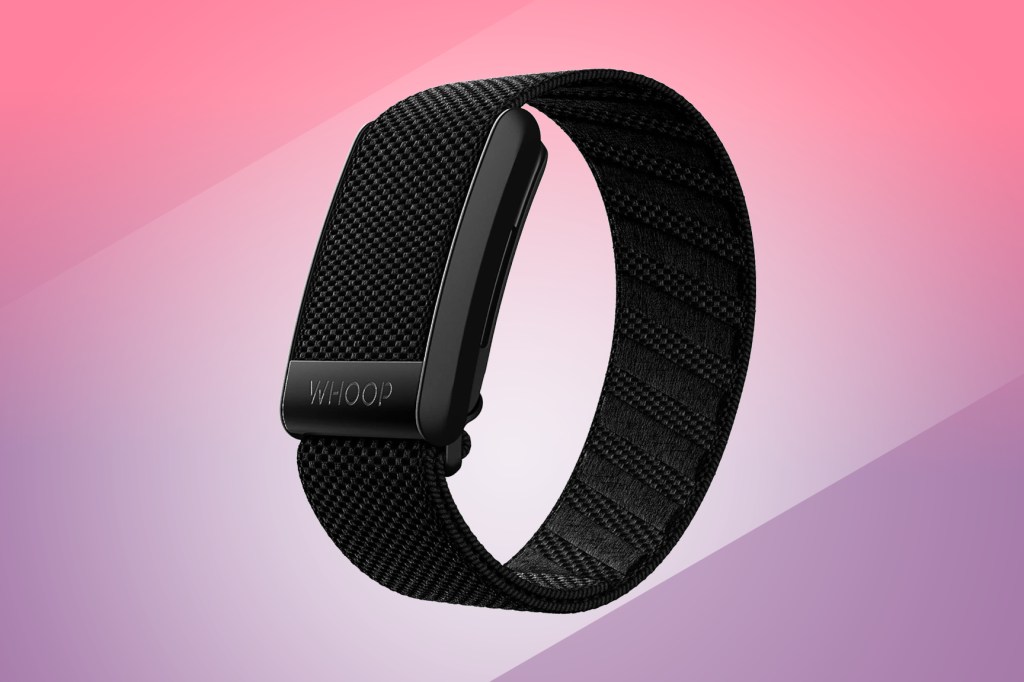
3. Whoop MG
Stuff Verdict
The Whoop MG packs medical-grade ECG and daily blood-pressure tracking into a sleek, screenless band. But the hefty subscription and occasional auto-tracking blind spots mean it’s a luxury.
Pros
- Medical-grade measurements for a wide range of metrics
- Insights that actually teach you about your body
- Slick, intuitive app with seamless integrations
Cons
- Requires a pricey annual subscription to use
- Only one specific band allows ECG and Heart Screener features
- Auto workout, step and VO2 Max readings aren’t always reliable
| Whoop MG specs | |
|---|---|
| Screen | N/A |
| Battery life | 14 days |
| Water resistance | IP68 (up to 10m) |
| GPS | No |
| Sensors | PPG heart rate, ECG electrodes, accelerometer, skin-temperature sensor |
| Compatibility | Android and iOS |
| Weight | 27.3 g / 0.96 oz |
We wore the Whoop MG non-stop for over a month, and it’s easily the most advanced fitness tracker we’ve tested – as long as you’re OK wearing an Apple Watch alongside it. The screenless band hides seriously smart tech, including medical-grade ECG and surprisingly accurate overnight blood pressure estimates. We calibrated it using a proper cuff and found the readings within 3 mmHg. That’s impressive.
We really liked waking up to meaningful insights instead of another vague sleep chart. Recovery scores often lined up with how we actually felt, and the daily “Optimal Strain” targets were weirdly spot-on – on green days we really did feel stronger. But auto-detection let things down. It spotted our runs, but missed most strength workouts unless we logged them manually. That meant relying on our Apple Watch for reliable tracking, which defeats the purpose somewhat.
The companion app’s a highlight – slick, insightful, and genuinely helpful – especially the Daily Outlook and Journal tools. But only the included strap unlocks ECG, which feels limiting.
With two-week battery life, a featherweight feel, and real health insights, the MG is a serious tool. Just know you’ll be paying handsomely for it – both upfront and every year after.
- Read more: Whoop MG review
Best Garmin fitness tracker
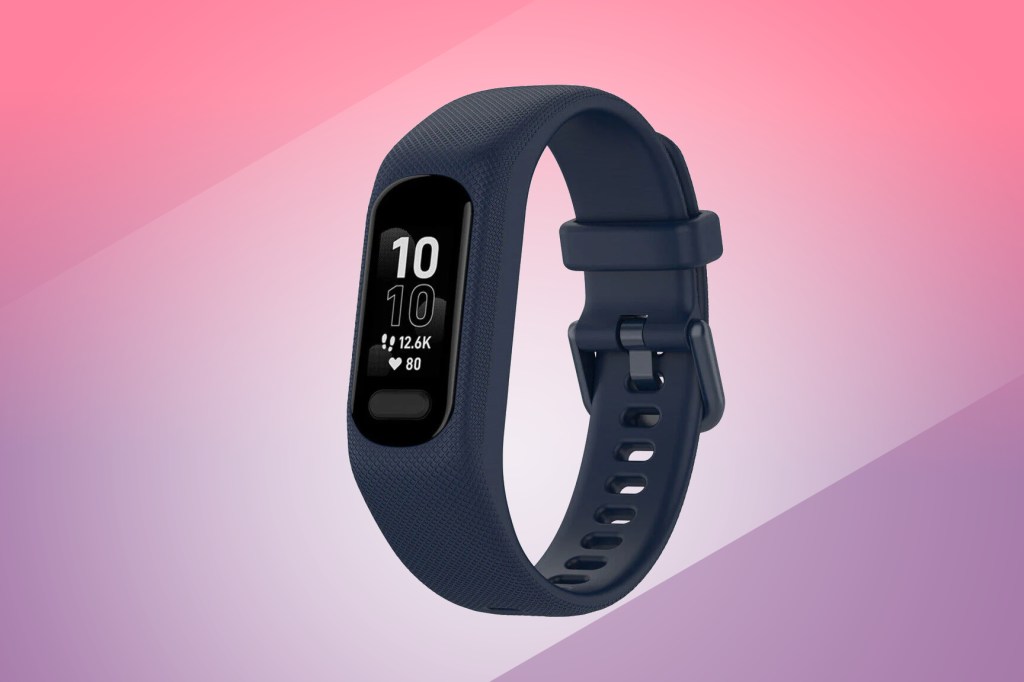
4. Garmin Vivosmart 5
Stuff Verdict
Its lightweight design might be forgettable, but if you can deal with the dinky screen and lack of built-in GPS, the Vivosmart 5 offers a lot of tracking smarts for a relatively affordable price
Pros
- Lightweight, comfortable fit
- Streamlined, swappable design
- Comprehensive tracking features
Cons
- Underwhelming display
- Slightly fiddly interface
| Garmin Vivosmart 5 specs | |
|---|---|
| Screen | 0.41×0.73in OLED touchscreen, 88×154 pixels |
| Battery life | 7 days |
| Water resistance | 5ATM |
| GPS | No |
| Sensors | Heart rate, blood oxygen, accelerometer, ambient light |
| Compatibility | Android and iOS |
| Weight | 24.5g / 0.86 oz (small), 26.5g / 0.93 oz (large) |
If you’re after Garmin’s excellent fitness tracking app’s features but don’t want to spring for one of its pricey watches, then we think something like the Vivosmart 5 could be the ideal solution. It’s pretty smart, as far as fitness tracking bands go, thanks to a pared-back design and textured rubber shell.
Feature-wise, it ticks most boxes, including the usual fitness and sleep-tracking skills, along with a pulse oximeter, stress tracker, and Garmin’s body battery energy monitor. The addition of smartphone notifications and music controls also lends it some smarter functionality, without entering full smartwatch territory.
In our review, we found the battery life is decent, if not great, with around 7 days of use per charge on offer. If you’re set on using Garmin’s well-established app, then this could be one of the best entry points before potentially upgrading to something more fully-featured in future.
- Read more: Garmin Vivosmart 5 review
Best cheap Fitbit
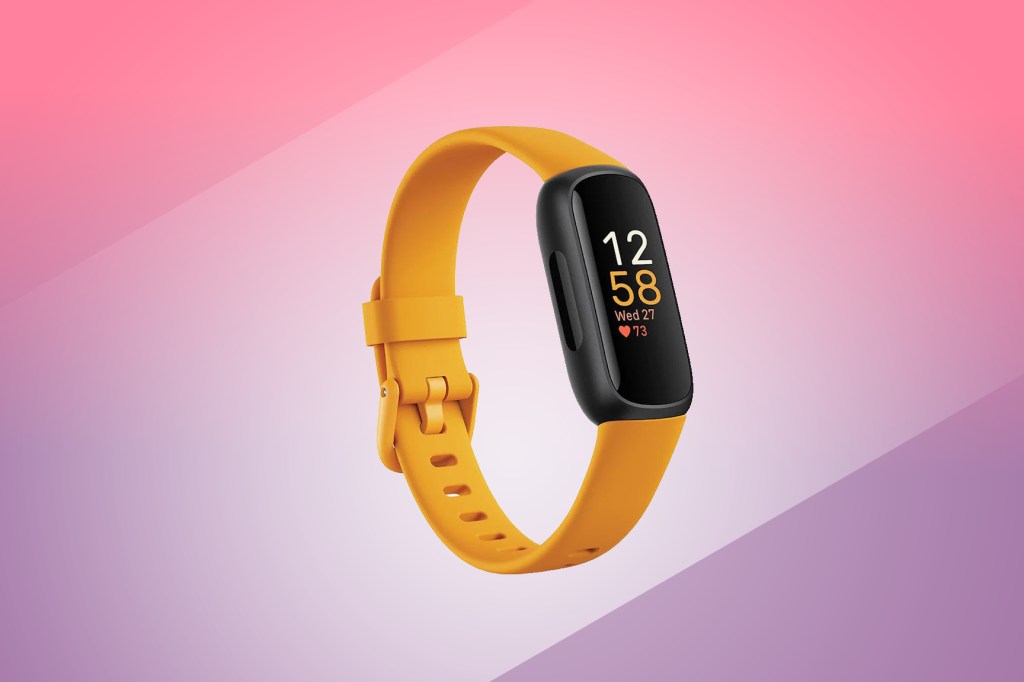
5. Fitbit Inspire 3
Stuff Verdict
Comfortable, and with a new colour screen, the Fitbit Inspire 3 means maybe you don’t need a smartwatch.
Pros
- A colour screen (finally)
- Great sleep tracker
- Best battery life on a Fitbit
Cons
- Some insights require Fitbit Premium
- It’s a small display
| Fitbit Inspire 3 specs | |
|---|---|
| Screen | 72x128px AMOLED |
| Battery life | 10 days |
| Water resistance | 5ATM |
| GPS | No |
| Sensors | 3-axis accelerometer, optical heart rate monitor, red and infrared sensors for blood oxygen (SpO2) monitoring, ambient light sensor |
| Compatibility | Android and iOS |
| Weight | 17.7 g / 0.62 oz |
With a great battery life, minimal-yet-smart design, and a price that’s at the more affordable end of Fitbit’s lineup, the Inspire 3 has plenty going for it.
Sure, you won’t get more advanced features like sweat-based stress tracking or GPS for phone-free runs, but if you want to enter the world of Fitbit’s tried and tested ecosystem while tracking activities, sleep, steps and more, the Inspire 3 won’t let you down.
- Read more: Fitbit Inspire 3 review
Best hybrid fitness tracker
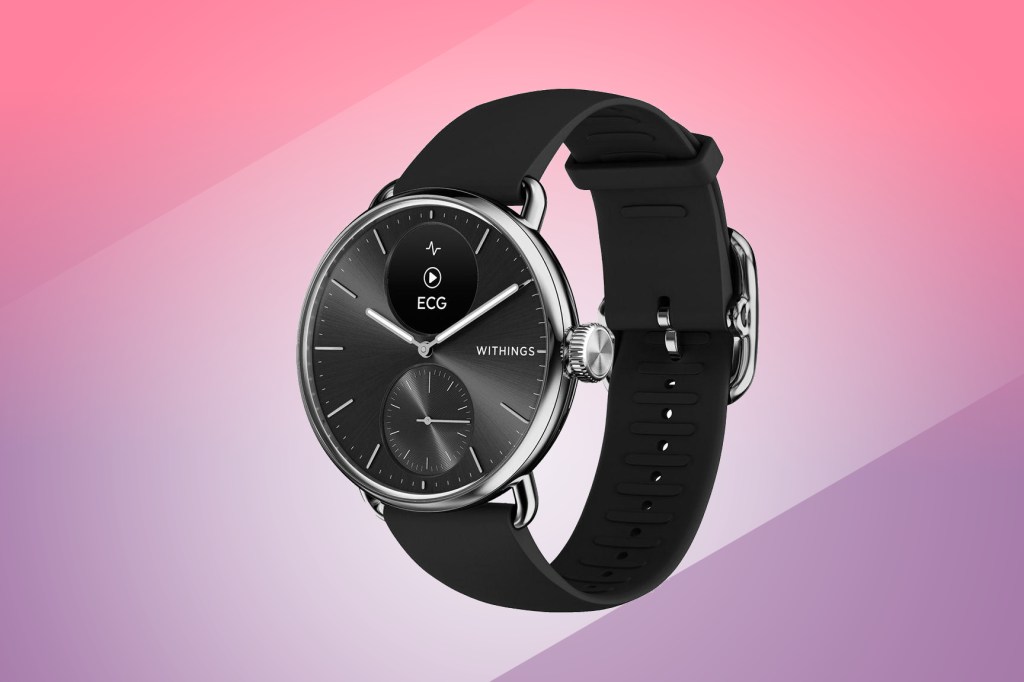
6. Withings ScanWatch 2
Stuff Verdict
A fitness tracker for analogue watch fans, the subtle ScanWatch 2 will track everything from steps to oxygen saturation, ECG and temprature.
Pros
- Great design for analogue fans
- Impressive battery life
Cons
- Not much information displayed on device
- Notifications are a little pointless
| Withings ScanWatch 2 specs | |
|---|---|
| Screen | Analogue dial + small PMOLED screen |
| Battery life | 30 days |
| Water resistance | 5 ATM |
| GPS | No |
| Sensors | Multi-wavelength PPG heart rate/SpO2 sensor, stainless steel electrodes, MEMS 3-axis accelerometer |
| Compatibility | Android and iOS |
| Weight | 58g / 2 oz (38mm), 83g / 2.9 oz (42mm) |
The Withings ScanWatch 2 nails the hybrid smartwatch formula, combining classic looks with cutting-edge health tracking. Its analogue face hides a discreet display that delivers notifications and stats without spoiling the traditional watch aesthetic.
Health features are where it shines. You get ECG, SpO2, body temperature tracking, and even sleep apnea detection – making it one of the most advanced hybrids available. It also covers the basics with 24/7 activity tracking, heart rate monitoring, and detailed sleep analysis.
And the battery life? Outstanding. With up to 30 days on a single charge, the ScanWatch 2 outlasts almost every full smartwatch out there. If you want serious health tracking in a timeless package, this is the watch to beat. If you want cutting-edge health insights without sacrificing style, the ScanWatch 2 is an easy recommendation.
- Read more: Withings ScanWatch 2 review
Best fitness tracker for sleep
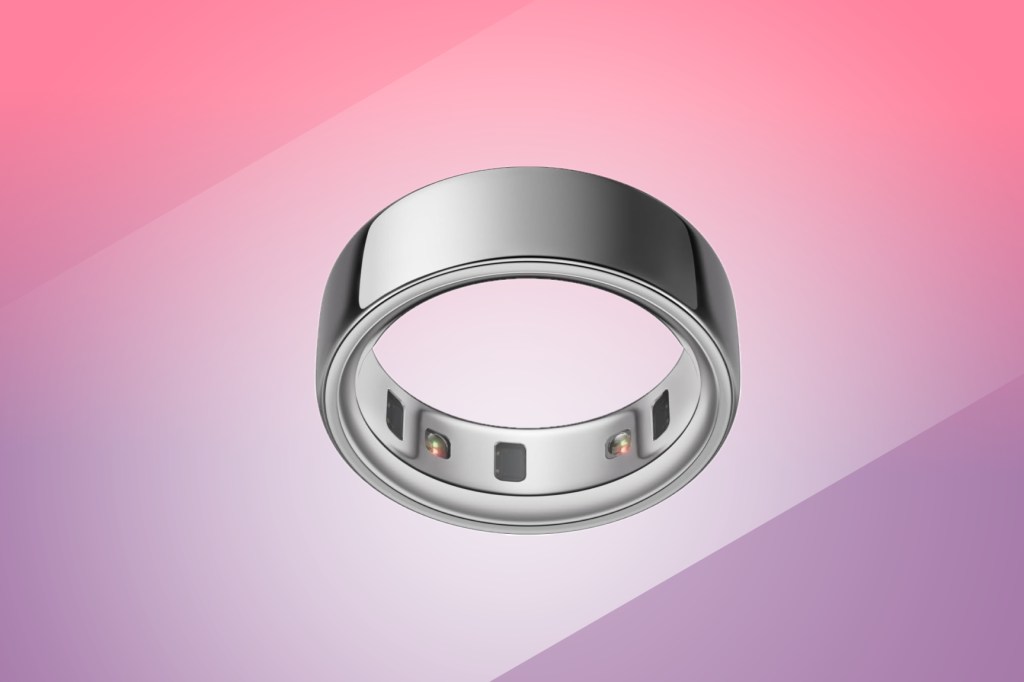
7. Oura Ring Gen 4
Stuff Verdict
The Oura Ring is a sleek, screen-free wellness tracker that delivers advanced sleep, recovery, and activity insights—helping you optimise your health effortlessly and stylishly.
Pros
- Gives an overall view of health, rest and recovery
- Comfortable to wear all day
- Advanced tracking such as SpO2 and menstrual cycle
Cons
- Much chunkier than a traditional ring
- Not the best for proper workout tracking
| Oura Ring Gen 4 specs | |
|---|---|
| Screen | N/A |
| Battery life | Up to 8 days |
| Water resistance | 100m / 300ft |
| GPS | No |
| Sensors | Optical heart rate sensor, blood oxygen, infrared photoplethysmography (PPG), skin temperature sensor, photodiodes, 3D accelerometer |
| Compatibility | Android and iOS |
| Weight | 4 – 6 g (depending on ring size) / 0.14 – 0.17 oz |
Want a fitness tracker but don’t want to clutter your wrist and/or sacrifice your beloved traditional timepiece? Enter the Oura Ring — a fitness tracker that’s cleverly incorporated into an honest-to-goodness ring, letting you wear it on your finger of choice for unintrusive tracking.
The Oura Ring Gen 4 takes everything people loved about its predecessor and pushes it further with smarter, more precise health tracking. It now packs an upgraded heart rate sensor, seven temperature sensors for deeper wellness insights, and a new SpO2 sensor to monitor blood oxygen levels.
Despite its discreet, ring-style form factor, the Oura Ring Gen 4 offers powerful tracking for sleep, recovery, and daily activity. It provides in-depth sleep analysis, stress monitoring, and personalised readiness scores, making it an excellent tool for optimising overall well-being. With its lightweight, durable design and up to a week of battery life, it’s a hassle-free alternative to traditional fitness wearables.
What sets it apart is the form factor. Unlike wrist-based trackers, the Oura Ring slips seamlessly into daily life, offering serious health data without the distraction of a screen or the bulk of a smartwatch. Stylish, discreet, and packed with advanced tracking features, it’s one of the smartest ways to monitor your health around the clock.
How to choose the best fitness tracker for you
Overwhelmed by the vast choice of fitness trackers out there? Fear not, for Stuff’s wearable experts are on hand to grace you with their expertise.
The first step is deciding on a form factor — we’ve gone mostly for more minimalist “band”-type trackers, as they’re fitness-focused rather than offering all the apps, bells, and whistles served up by, say, some of the best Android smartwatches. That’s not to say you can’t opt for a smartwatch, mind. In fact, we’ve included the likes of the Apple Watch SE above as it’s a great choice for iPhone users looking for fitness tracking and other smarts in one device.
For the most part, though, you’ll want something compact, thin, and light, with a smartwatch-beating battery life of around five days or more. Waterproofing is a must if you’re swimming, and practically every fitness tracker is weather/sweat-resistant at the very least, for obvious reasons.
Built-in GPS is a bonus if you’re looking to track outdoor activities without having to bring along your bulky smartphone, and other extras like music playback can come in handy for the same reason.
With most fitness trackers offering the same core experience — namely, steps counted, calories burned, heart rate, sleep tracking, activity tracking, and more, you’ll want to decide on which brand you feel most comfortable with. Some fitness trackers offer more comprehensive stats for particular sports like swimming, and if you’ve already got a device from a particular brand, you may want to stay within their ecosystem so that you don’t lose any of your existing app data.
If you’re interested in exploring more, check out our guides on the best kids’ fitness trackers and the best budget fitness trackers.
Finally, if you’re serious about getting fit, check out Stuff’s guide to the best GPS watches.
Fitness trackers vs smartwatches
Fitness trackers and smartwatches both offer fitness tracking, but they serve different needs. Fitness trackers are typically smaller, lighter, and designed primarily for health monitoring. They focus on essentials like step counting, heart rate tracking, sleep analysis, and sometimes SpO2 and stress monitoring. Many fitness trackers also have longer battery life, often lasting a week or more.
Smartwatches go beyond fitness tracking, offering notifications, apps, and even extras like music storage or phone calls. Many include built-in GPS for accurate workout tracking and feature larger, interactive displays. The trade-off? They’re bulkier and often need charging every day.
If you want a straightforward fitness tracker with long-lasting battery life and minimal distractions, a fitness band is the better pick. But if you’d rather have a do-it-all device that balances health features with smart functionality, a smartwatch makes more sense (read Stuff’s guide to the best smartwatches).
Which fitness tracker has the best health app?
Every fitness tracker app has its strengths, but Oura’s stands out. It focuses less on step counts and high-intensity workouts, and more on recovery, sleep, and long-term well-being. If you care about understanding how your body recharges as much as how it moves, Oura arguably offers the best overall health app experience.
The Oura app is slick, calming, and obsessively detailed. It’s less “rah-rah” motivation and more “here’s how your body’s really doing” – tracking sleep stages, readiness, heart rate variability, body temperature, and even stress with impressive accuracy. You get personalised insights without being bombarded by pushy alerts.
Fitbit’s app is more fitness-focused, gamified, and social. Garmin’s excels for performance stats and sports, though its interface is more utilitarian. Whoop bands are great for athletes, but its app can feel a bit intense if you’re not chasing PBs daily.
So, for thoughtful, science-backed health insights wrapped in a beautifully chill app experience, Oura leads the pack – especially if you like tracking, not just training.
How we test the best fitness trackers
We’ve put every fitness tracker on this list through proper testing, so the recommendations come from real use, not quick impressions. With years of experience reviewing wearables, we only highlight the models that prove themselves in performance, ease of use, and value.
We don’t just test them for a day or two, either. Each tracker gets at least a week on the wrist, worn around the clock, so we can see how it performs in everyday life – from workouts to sleep tracking and everything in between. That means running with GPS switched on, checking step counts against a pedometer, and comparing heart-rate readings to a chest strap. We also sleep with them on to see how well they track rest and recovery.
We look at everything that matters: tracking accuracy across different workouts (from a quick HIIT session to a long cycle ride), battery life in everyday use and with features like continuous GPS, comfort during sweaty runs or overnight wear, and ease of use when you’re mid-exercise and don’t want to fumble through menus. The result is a clear picture of how each device performs, helping you choose the right one with confidence.
For more information on Stuff’s rating and review process, feel free to read our page on how we test products.

